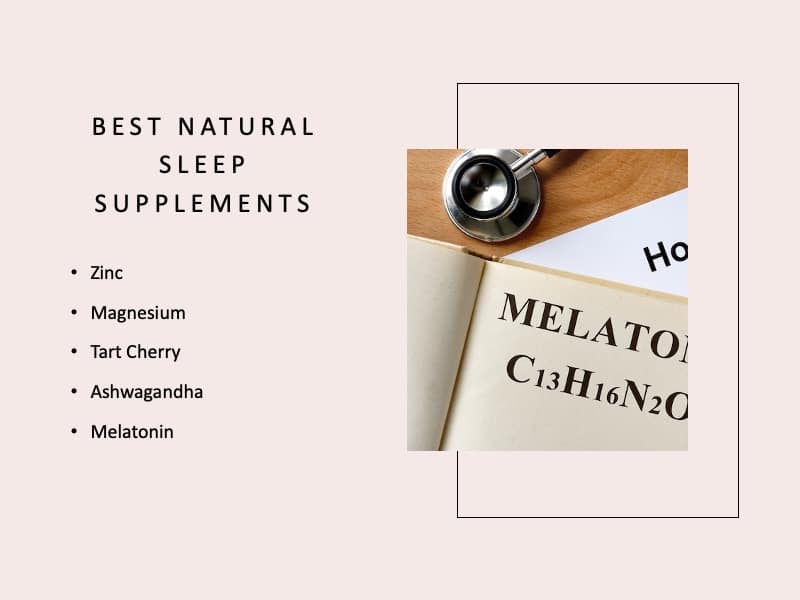How Do Traditional Herbal Supplements for Sleep Help Combat Restlessness?
Restlessness at night can feel overwhelming when your mind refuses to slow down, and your body struggles to relax, which is why many people now turn to herbal supplements for sleep as a gentler way to support natural sleep rhythms without relying on harsh sedatives.
Traditional options like chamomile, valerian root, and hops have been used for centuries because they help quiet the nervous system, ease tension, and encourage the brain to shift into a calmer state that supports deep, restorative rest.
Research suggests that plant compounds found in these herbs interact with neurotransmitters such as GABA and serotonin, which play key roles in regulating sleep onset and reducing nighttime agitation (Fernández-San-Martín et al., 2010; Kazemi et al., 2024).
This gives them a unique advantage for people who want a steady, natural sense of calm rather than the forced drowsiness some prescription sleep medications can cause.
Modern formulas like the sleep supplements from Zana Nutrition build on these traditional foundations by combining herbs with supportive nutrients like magnesium or vitamin B6 to further promote a balanced sleep–wake cycle.
These products offer a practical, plant-based pathway to unwind at night, reduce stress-driven restlessness, and cultivate a more predictable nighttime routine.
For anyone looking to restore a healthier sleep rhythm through nature-based methods, herbal supplements for sleep can be an effective and approachable option.
How Herbal Remedy Sleep Supplements Address Restlessness & Improve Sleep Quality

Natural sleep aids help calm both the body and mind through specific plant compounds and nutrients that influence brain chemistry, nerve function, and sleep cycles.
Their effects depend on how they interact with neurotransmitters and support relaxation without creating dependency.
Herbal sleep supplements often work by balancing neurotransmitters such as gamma-aminobutyric acid (GABA), serotonin, and melatonin.
These chemicals help regulate the body’s relaxation and sleep responses.
- Ingredients like valerian root, chamomile, and hops may increase GABA activity, which quiets overactive nerve signals.
- Melatonin and tryptophan support the body’s internal clock, helping users fall asleep faster and maintain steady rest.
Some products combine these compounds with vitamins like B6 to help the body produce natural sleep hormones.
Herbal Remedies and the Nervous System
Many herbal remedies target the nervous system by reducing nerve tension and promoting relaxation.
Valerian and kava, for example, influence GABA receptors, which slow nerve activity and ease mental agitation.
Magnesium, often included in natural blends, supports nerve and muscle balance and may reduce nighttime cramps that disrupt rest.
Chamomile and theanine also support the parasympathetic nervous system, which controls the body’s rest response.
Their mild sedative effects can ease anxiety and prepare the body for rest without the risks linked to prescription sleep aids.
By calming nerve impulses, these herbs help lower stress-related restlessness, allowing the body to enter a more stable and restorative sleep phase.
Impact on Sleep Quality and Patterns
Herbal sleep aid supplements do more than shorten the time it takes to fall asleep.
They can improve the quality and consistency of rest by helping regulate the sleep–wake cycle.
Melatonin, for instance, signals the body to prepare for nighttime, while valerian and hops may improve deep sleep stages.
Users often report fewer awakenings and a more refreshed feeling upon waking.
These effects appear stronger when combined with good sleep habits, such as avoiding caffeine late in the day and maintaining a regular bedtime.
Regular use of natural, doctor-formulated supplements may help restore balance in sleep patterns, leading to steadier energy and reduced restlessness over time.
Key Herbal Ingredients and Their Effects on Rest and Relaxation
Certain traditional herbs influence the body’s natural sleep and relaxation processes by affecting neurotransmitters, hormones, and stress responses.
Each plant contains unique compounds that calm the nervous system, reduce anxiety, and support steady sleep cycles without causing dependence.
Chamomile and Apigenin for Calming Effects
Chamomile has long served as a gentle natural sleep aid. Its main active compound, apigenin, binds to GABA receptors in the brain, which helps quiet mental activity and ease tension before bedtime.
Regular use of chamomile tea or extract may reduce mild anxiety and support more restful sleep.
Studies show that apigenin’s mild sedative effect does not impair alertness the next day (Kramer & Johnson, 2024).
Chamomile also contains flavonoids that act as antioxidants, which may help protect cells from stress-related damage.
This calming herb suits people who experience irritability, restlessness, or difficulty winding down after a busy day.
Valerian Root, Hops, and GABA Modulation
Valerian root and hops often appear together in natural sleep formulas because they both influence GABA activity, a key pathway for relaxation.
Valerian root increases GABA availability in the brain, helping shorten the time to fall asleep.
Hops add a complementary effect.
They contain compounds that promote deeper sleep and help reduce nighttime awakenings.
This combination supports steady, uninterrupted rest without morning grogginess.
People who experience restlessness or tension before bed may find these herbs helpful.
Both valerian and hops work gradually, allowing the body to reestablish a balanced sleep rhythm over time.
Passionflower, Lemon Balm, and Anxiety Reduction
Passionflower and lemon balm calm the nervous system through gentle actions on neurotransmitters and stress hormones.
Passionflower supports GABA activity, which helps quiet racing thoughts and ease mild insomnia.
Lemon balm contains natural terpenes and flavonoids that reduce cortisol levels, allowing the body to relax more easily.
It may also support better melatonin production, which helps align the sleep-wake cycle.
Together, these herbs reduce anxiety and support relaxation without sedation.
They can be used as teas, tinctures, or capsules to help people unwind before bed or recover from daily stress.
Lavender, Ashwagandha, and Adaptogenic Benefits
Lavender provides a soothing aroma and contains linalyl acetate and linalool, compounds known to calm the nervous system.
Inhalation or oral use may lower heart rate and promote a sense of peace before sleep.
Ashwagandha, an adaptogenic herb, helps the body manage stress by balancing cortisol and supporting stable energy levels.
Adaptogens for sleep, like ashwagandha, may improve sleep quality in people who experience anxiety or irregular sleep due to overwork.
Used together, lavender and ashwagandha create a balanced approach to rest and relaxation.
They help the body adjust to stress, quiet the mind, and prepare for deep, restorative sleep.
Final Thoughts: Should You Use Traditional Herbal Supplements for Sleep?
Choosing traditional herbal sleep supplements can be a practical, evidence-based way to reduce restlessness at night, especially for people who prefer gentle, plant-based support over stronger pharmaceutical options.
Studies suggest that herbs such as valerian, chamomile, and lemon balm can influence GABA and serotonin activity, promoting relaxation, easing nighttime anxiety, and improving overall sleep quality without causing dependence (Fernández-San-Martín et al., 2010; Shi et al., 2022).
These supplements work best when paired with consistent sleep habits, reduced evening caffeine, and a wind-down routine that signals safety and calm to the nervous system.
A nighttime formula from a reputable brand, such as Zana Nutrition’s sleep supplements, may offer additional benefits by combining herbs with supportive nutrients like magnesium or vitamin B6.
People who experience chronic insomnia, severe anxiety, or medical sleep disorders should still consult a healthcare professional to ensure these supplements fit their needs safely.
For those dealing with mild restlessness, however, traditional herbal formulas offer a natural path toward steadier sleep and a more restorative night’s sleep.
This website does not provide medical advice. This website site does contain affiliate links, and purchases may earn a commission.
Read my Medical Disclaimer, Review Disclaimer, and Publishing Policies for more details. Use of this site indicates acceptance of these terms.



